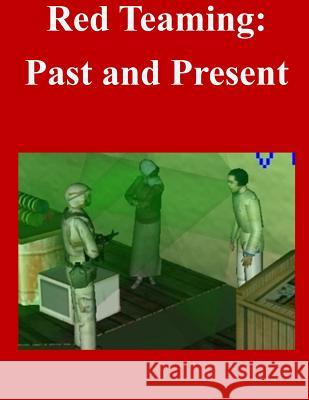Red Teaming: Past and Present » książka
Red Teaming: Past and Present
ISBN-13: 9781500722050 / Angielski / Miękka / 2014 / 88 str.
"Red teaming" is a relatively new buzzword, but there is no common definition of its meaning. It can mean role-playing the adversary, conducting a vulnerability assessment, or using analytical techniques to improve intelligence estimates. While these definitions seem unrelated, they have in common the goal of improving decision making. This commonality forms the basis of the army's understanding of red teaming. Key aspects of the army red teaming definition are its emphasis on independent thinking, challenging organizational thinking, incorporating alternative perspectives, and incorporating alternative analysis. The purpose of this monograph is to examine historical and contemporary red teaming, and to determine its value in decision-making. To this end, this monograph compares the success of past "great captains" of warfare against modern military failures in the form of three case studies. Field Marshal Slim's 1945 counteroffensive into Burma and T.E. Lawrence's participation in the Arab Revolt during World War I demonstrate how red teaming enabled each commander to develop a better understanding of their operating environment. Operation Iraqi Freedom demonstrates the dangers of misapplying red teaming, and emphasizes the importance of realism and accuracy in using alternative perspectives and divergent analysis. This monograph concludes that using the core concepts of red teaming enables understanding the operating environment, which is critical to achieving success on the modern battlefield.
Zawartość książki może nie spełniać oczekiwań – reklamacje nie obejmują treści, która mogła nie być redakcyjnie ani merytorycznie opracowana.











